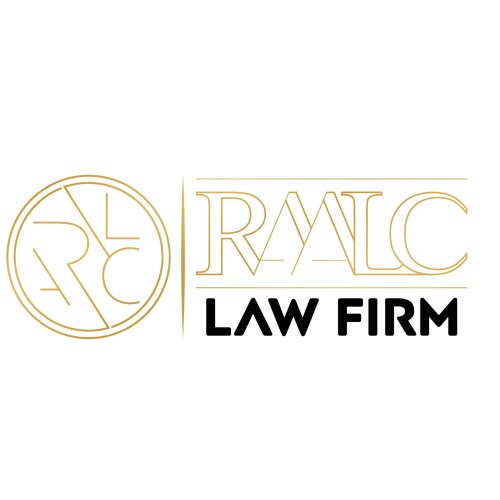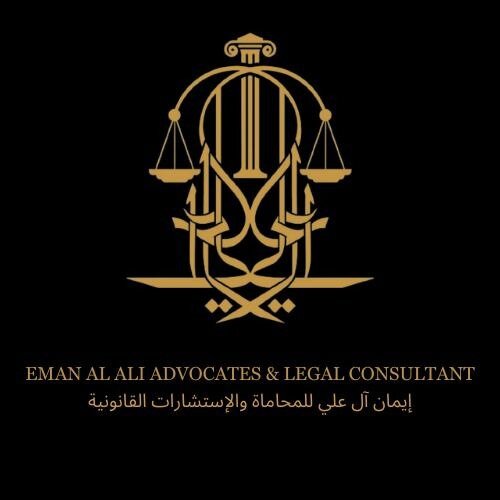Best Financial Services Regulation Lawyers in United Arab Emirates
Share your needs with us, get contacted by law firms.
Free. Takes 2 min.
Or refine your search by selecting a city:
List of the best lawyers in United Arab Emirates
About Financial Services Regulation Law in United Arab Emirates
The Financial Services Regulation in the United Arab Emirates (UAE) serves as the framework for promoting transparency, integrity, and stability within the financial markets. The regulatory environment is managed by various bodies, including the Central Bank of the UAE, the Securities and Commodities Authority (SCA), and financial free zones like the Dubai International Financial Centre (DIFC) and the Abu Dhabi Global Market (ADGM). These entities set forth robust regulatory guidelines and enforce compliance to protect investors and maintain economic stability. The regulatory laws extend to banking, insurance, securities, and other financial services, ensuring they operate within stringent governance and risk management frameworks.
Why You May Need a Lawyer
Navigating the complex landscape of Financial Services Regulation in the UAE can be challenging without professional guidance. Common situations where legal help may be required include establishing financial institutions, ensuring compliance with local laws, managing disputes related to financial transactions, handling mergers and acquisitions, and addressing issues of regulatory compliance. A lawyer well-versed in financial regulation can provide critical advice, represent clients in disputes, and offer strategic insights to align businesses with regulatory standards.
Local Laws Overview
The UAE’s regulatory framework comprises several key legislations. The Central Bank of the UAE, which regulates banks, monetary policy, and foreign exchange businesses, is central to this framework. The SCA regulates and develops the securities and commodities sector. Financial free zones like the DIFC and ADGM offer their own legal frameworks and court systems. Privacy and data protection laws, anti-money laundering regulations, and consumer protection laws also play a significant role in how financial services operate. Understanding these laws is crucial for entities operating within the financial landscape.
Frequently Asked Questions
What is the role of the Central Bank in the UAE's financial regulation?
The Central Bank of the UAE oversees monetary stability, ensures soundness in the financial system, and regulates financial institutions such as banks, exchange houses, and financial companies.
What is the DIFC, and how does its regulatory framework differ?
The Dubai International Financial Centre (DIFC) is a financial free zone with its own legal framework and independent courts. It is designed to facilitate financial and business services in the region.
How does the UAE ensure compliance with international financial standards?
The UAE implements international financial standards through its laws and regulations, supplemented by international cooperation agreements to combat financial crimes, ensure transparency, and promote economic stability.
What constitutes a financial crime under UAE laws?
Financial crimes in the UAE include money laundering, fraud, embezzlement, terrorist financing, and insider trading, all of which are subject to strict penalties.
Can foreign entities provide financial services in the UAE?
Yes, but foreign entities must obtain the necessary licenses and comply with local laws and regulations. They often operate within financial free zones like the DIFC and ADGM under specific regulatory frameworks.
What support does the Securities and Commodities Authority (SCA) provide?
The SCA regulates the securities and commodities markets, ensuring transparency, fairness, and efficiency, and it aims to protect investors and improve market practices.
How are consumer rights protected in financial services?
Consumer protection laws require financial service providers to offer services transparently and fairly, safeguarding consumer rights and promoting informed decision-making.
What steps are involved in establishing a financial institution in the UAE?
The process involves meeting regulatory requirements, obtaining licenses from appropriate bodies (e.g., the Central Bank or DIFC), and ensuring compliance with all relevant laws and regulations.
How does anti-money laundering regulation impact financial businesses?
UAE’s robust anti-money laundering framework requires financial institutions to implement strict monitoring systems, maintain records, report suspicious activities, and comply with procedures to combat illegal financial activities.
What are the penalties for non-compliance with financial regulations?
Penalties for non-compliance can include fines, revocation of licenses, and legal proceedings, which can result in severe repercussions for financial institutions and their management.
Additional Resources
Several resources can be helpful for those seeking more information or assistance in Financial Services Regulation in the UAE, including:
- The Central Bank of the UAE
- Securities and Commodities Authority (SCA)
- Dubai International Financial Centre (DIFC) Authority
- Abu Dhabi Global Market (ADGM) Authority
- Local law firms specializing in financial services regulation
Next Steps
If you require legal assistance in Financial Services Regulation, consider consulting with a qualified legal professional who specializes in this field. Start by researching law firms with expertise in financial regulation or seek recommendations from industry peers. Prepare all relevant documents and details of your situation. During your initial consultation, discuss your needs and seek clarity on potential strategies and costs involved. Engaging with a knowledgeable lawyer can help navigate regulatory requirements and address legal concerns effectively.
Lawzana helps you find the best lawyers and law firms in United Arab Emirates through a curated and pre-screened list of qualified legal professionals. Our platform offers rankings and detailed profiles of attorneys and law firms, allowing you to compare based on practice areas, including Financial Services Regulation, experience, and client feedback.
Each profile includes a description of the firm's areas of practice, client reviews, team members and partners, year of establishment, spoken languages, office locations, contact information, social media presence, and any published articles or resources. Most firms on our platform speak English and are experienced in both local and international legal matters.
Get a quote from top-rated law firms in United Arab Emirates — quickly, securely, and without unnecessary hassle.
Disclaimer:
The information provided on this page is for general informational purposes only and does not constitute legal advice. While we strive to ensure the accuracy and relevance of the content, legal information may change over time, and interpretations of the law can vary. You should always consult with a qualified legal professional for advice specific to your situation.
We disclaim all liability for actions taken or not taken based on the content of this page. If you believe any information is incorrect or outdated, please contact us, and we will review and update it where appropriate.
Browse financial services regulation law firms by city in United Arab Emirates
Refine your search by selecting a city.

















